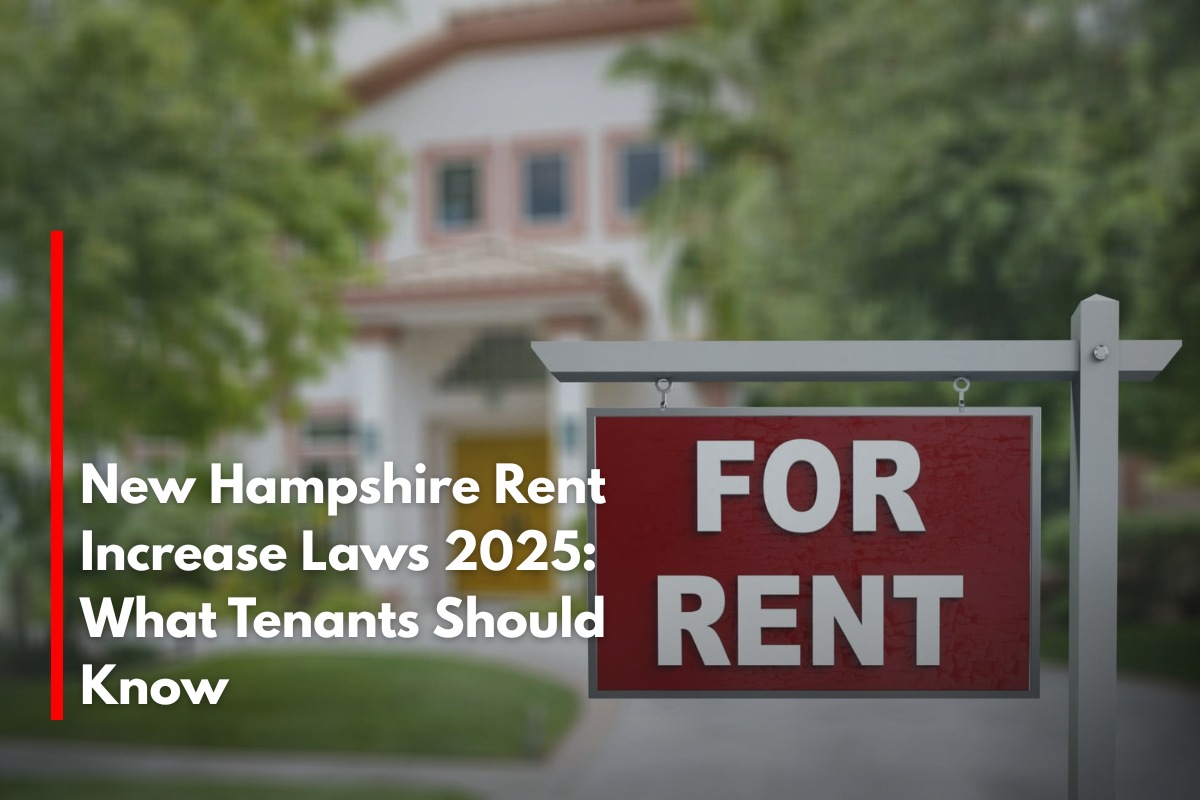Facing a rent increase in New Hampshire can be stressful, especially in today’s housing market. Here’s a comprehensive legal guide for tenants in 2025, explaining your rights, landlord requirements, and practical tips for handling rent hikes.
No Statewide Rent Control: Unlimited Increases Possible
New Hampshire does not have rent control laws—there is no cap on the amount by which a landlord can increase rent. Recently, bills that would have allowed cities and towns to enact local rent controls were rejected by the state legislature, so municipalities also cannot limit increases.
This means:
Landlords can propose any amount of increase for new lease terms.
There is no legal maximum percentage or dollar amount for rent hikes.
Notice Requirements for Rent Increases
Even though rent increases have no cap, landlords must follow notice rules:
For Month-to-Month Tenancies
For Fixed-Term Leases (e.g., yearly rental agreements)
Discrimination, Retaliation, and Fair Housing Protections
By law, rent increases cannot be used to:
If you suspect a rent increase is discriminatory or retaliatory, you can file a complaint with the NH Human Rights Commission or seek free legal aid.
Rental Assistance and Tenant Actions
If you receive a notice of a rent increase you cannot afford:
Negotiate with your landlord: Communication can sometimes result in a smaller or phased-in increase.
Seek rental assistance: The NH Housing Authority, federal programs, or local nonprofits may help eligible tenants manage higher costs.
Legal Aid: 603 Legal Aid and similar organizations can help you dispute unreasonable or unlawful increases if you believe laws or lease terms were violated.
What Happens If You Don’t Accept the Increase?
For month-to-month tenancies, if you do not accept the new rent, the landlord may give notice to terminate the lease after the required notice period. For fixed-term leases, you can choose not to renew if the new rent is unaffordable. Documentation is key: keep copies of all notices and lease agreements.
Special Housing Programs
Special rules may apply to subsidized housing (e.g., HUD HOME/HTF units). In these cases:
Key Takeaways
No rent cap: Landlords can set rent increases as they wish, unless restricted by the lease.
Minimum 30-day notice: Required for month-to-month agreements.
Protections: No discrimination or retaliation allowed.
Communicate & document: Always keep written records.
Seek help if needed: Legal aid is available for disputes or claims.
Stay informed, communicate with your landlord, and make use of available resources to protect your housing rights when facing a rent increase in New Hampshire.
Sources
[1] https://www.hemlane.com/resources/new-hampshire-rent-control-laws/
[2] https://www.steadily.com/blog/rent-increase-laws-regulations-new-hampshire
[3] https://courts-state-nh-us.libguides.com/c.php?g=896726&p=6450247
[4] https://www.hemlane.com/resources/new-hampshire-tenant-landlord-law/
[5] https://www.steadily.com/blog/how-much-can-a-landlord-raise-rent-in-new-hampshire











